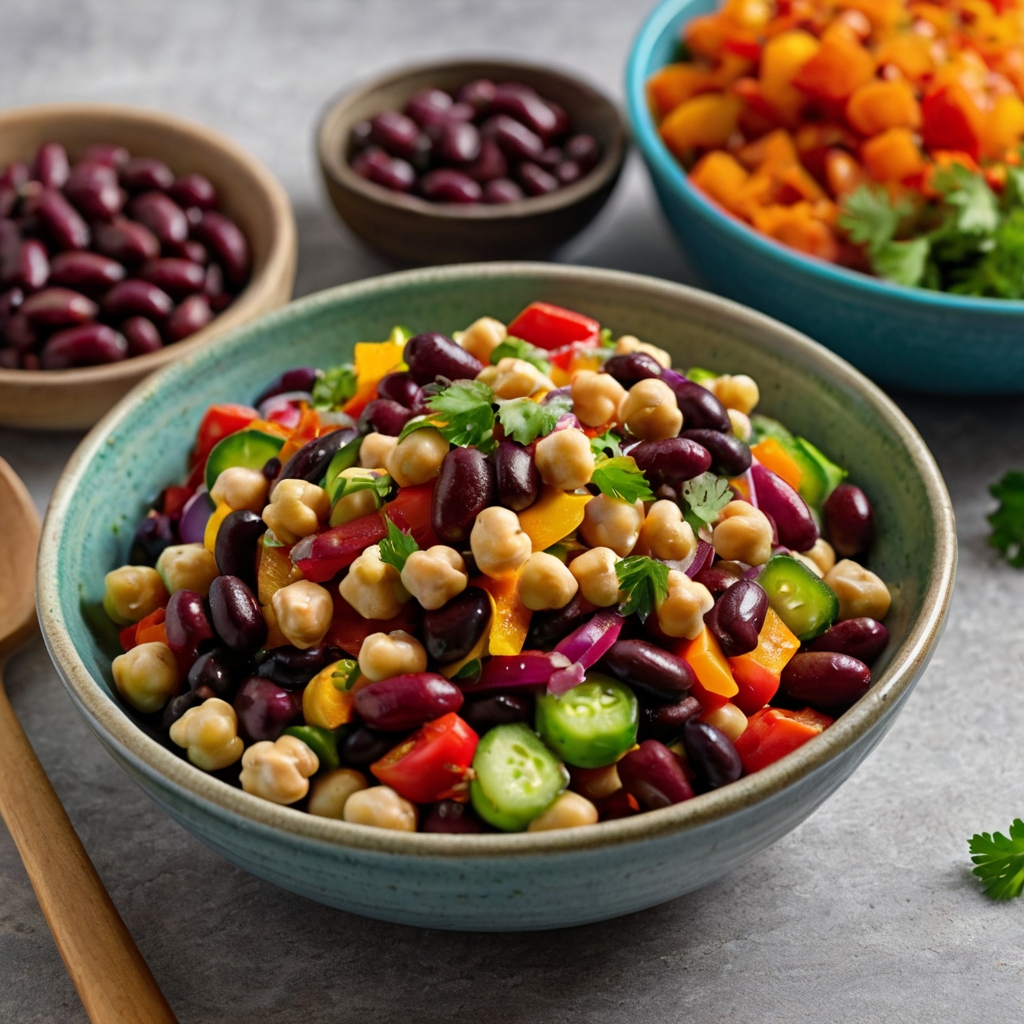The Ultimate Food to Lower Blood Sugar : Beans, the Diabetes-Fighting Superfood
When it comes to managing diabetes naturally, beans stand out as a powerhouse food. Known as the "sugar eater," beans are packed with nutrients and health benefits that make them a staple in any diabetes-friendly diet. Their unique combination of low glycemic index, lean protein, and soluble fiber works wonders in regulating blood sugar levels while supporting overall health.
Family doctor Dr. Daniela Stan from Călărași emphasizes that beans are essential for anyone seeking to maintain balanced blood sugar levels. Let’s explore why beans are a diabetes-fighting champion and how to incorporate them into your daily meals.
Why Are Beans So Effective for Managing Diabetes?
- Low Glycemic Index (GI):
Beans have a low GI, meaning they release glucose into the bloodstream gradually. This slow digestion helps prevent blood sugar spikes, making them a perfect choice for individuals with diabetes. - Rich in Plant-Based Fiber:
Beans are high in soluble fiber, which slows sugar absorption and reduces the need for insulin. This makes them an essential part of a diabetes-friendly diet. - Nutrient-Dense Profile:
Beans are packed with essential vitamins and minerals that support overall health, including:- Vitamin B: Enhances energy metabolism and brain function.
- Magnesium: Supports nerve health, regulates blood pressure, and aids muscle function.
- Potassium: Helps maintain electrolyte balance and lower blood pressure.
- Iron: Crucial for oxygen transportation in the blood and cellular growth.
- Calcium: Strengthens bones and improves muscle and nerve function.
- Improves Insulin Sensitivity:
Regular consumption of beans has been linked to better insulin sensitivity, helping individuals with diabetes maintain better glucose control.
Types of Beans and Their Benefits
Beans come in a variety of shapes, sizes, and flavors, making them versatile and suitable for any meal. Here are some popular types and their specific health benefits:
- Black Beans: High in antioxidants, they combat inflammation and improve heart health.
- Kidney Beans: Excellent source of protein and fiber, aiding digestion and stabilizing blood sugar.
- Chickpeas (Garbanzo Beans): A rich source of folate and magnesium, chickpeas boost energy and support heart health.
- Lentils: Packed with iron and protein, lentils promote steady energy and support muscle recovery.
- White Beans (Navy Beans): High in potassium, they help regulate blood pressure and support kidney function.
How to Incorporate Beans Into Your Diet
Beans are incredibly versatile and can be enjoyed in countless ways, whether fresh, dried, frozen, or canned. Here are some delicious ideas for incorporating beans into your daily meals:
- Breakfast:
- Add black beans to scrambled eggs for a protein-packed start to your day.
- Spread hummus (made from chickpeas) on whole-grain toast for a quick, nutrient-rich snack.
- Lunch:
- Prepare a hearty bean soup with white beans, kale, and lean chicken.
- Toss kidney beans into a salad with avocado, spinach, and cherry tomatoes for a blood-sugar-friendly meal.
- Dinner:
- Make a vegetarian chili with lentils, black beans, and diced vegetables.
- Serve baked salmon alongside a quinoa and chickpea salad for a balanced and flavorful dish.
- Snacks:
- Roast chickpeas with olive oil and spices for a crunchy, diabetes-friendly snack.
- Blend white beans into a creamy dip and pair it with fresh veggies.

How Much Should You Eat?
Experts recommend consuming about 3 cups of beans per week, which equates to about half a cup daily. This portion provides sufficient fiber, protein, and nutrients to support a healthy diet and improve diabetes management.
Health Benefits Beyond Diabetes
Beans don’t just benefit individuals with diabetes; they contribute to overall wellness, including:
- Heart Health: High fiber content helps lower LDL cholesterol.
- Weight Management: Beans are filling and low in calories, aiding in weight loss or maintenance.
- Digestive Health: Fiber promotes gut health and regular bowel movements.
Beans as a Diabetes-Friendly Superfood
Beans are more than just a simple food; they’re a vital component of a healthy lifestyle, particularly for those managing diabetes. With their low glycemic index, high fiber content, and abundance of essential nutrients, beans help regulate blood sugar levels while supporting overall health.
Whether enjoyed in soups, salads, or snacks, incorporating beans into your diet is a natural, effective way to improve your health and keep diabetes under control. Make them a regular part of your meals to reap their numerous benefits and enjoy the delicious possibilities they offer!
